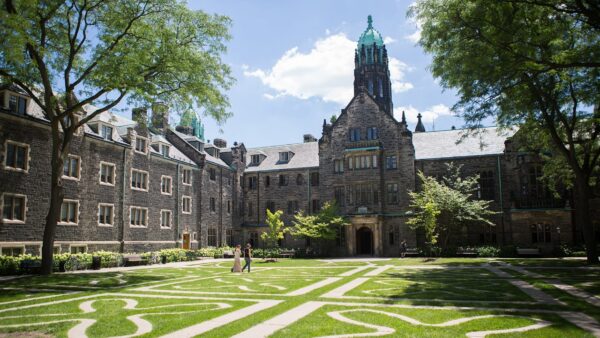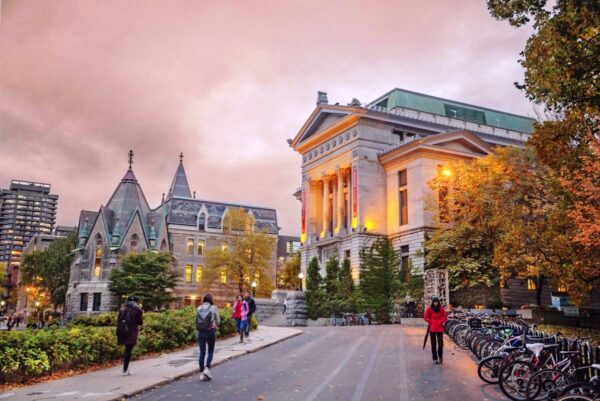Work and study in Canada for free by leveraging scholarships, tuition-free programs, and part-time employment opportunities. This guide unpacks every step—from visa applications to securing financial aid—to help you achieve an affordable Canadian education while gaining work experience.

Visa Requirements for Studying in Canada
Study Permit Essentials
To study in Canada, international students must obtain a study permit. Key requirements include:
- Letter of Acceptance from a Designated Learning Institution (DLI).
- Proof of Funds (CAD 20,635/year for living expenses + tuition fees).
- Valid Passport and a clean criminal record.
Temporary Resident Visa (TRV) or eTA
Depending on your nationality, you may also need a TRV or Electronic Travel Authorization (eTA). These allow entry into Canada alongside your study permit.
| Document | Processing Time | Cost (CAD) |
|---|---|---|
| Study Permit | 8–12 weeks | 150 |
| TRV | 14–42 days | 100 |
| eTA | Minutes | 7 |
Pro Tip: Apply through the IRCC Portal for streamlined processing.
Work Permits for International Students
Eligibility Criteria
- Enrolled full-time at a DLI.
- Study program duration ≥ 6 months.
- Valid Social Insurance Number (SIN).
Work Hour Limits
- 20 hours/week during academic sessions.
- Full-time during scheduled breaks (summer/winter holidays).
Approved Work Types:
- On-campus jobs (e.g., library, cafeteria).
- Off-campus roles (retail, internships).
- Co-op placements (requires separate permit).
Avoid: Self-employment or roles violating labor laws.
Scholarships for International Students
Top Scholarships in Canada
| Scholarship | University | Coverage |
|---|---|---|
| Lester B. Pearson Award | University of Toronto | Full tuition + living |
| Vanier CGS | Nationwide | 50,000/year (PhD) |
| UBC IMES | University of BC | 40,000 over 4 years |
Application Tips:
- Start 12 months before your program.
- Highlight academic excellence and leadership.
- Secure recommendation letters early.
Success Story: “The Vanier Scholarship let me pursue AI research at McGill debt-free,” says Priya Sharma, a PhD candidate from India.
Canadian Universities with Free/REDUCED Tuition
1. University of Toronto

Credit: Wiki
- Lester B. Pearson Scholarship: Covers tuition, books, and housing.
- Eligibility: Top 5% academic achievers.
2. McGill University

Credit: Wiki
- McGill Entrance Scholarship: Up to CAD 12,000/year for undergraduates.
- Apply via Minerva Portal.
3. University of Alberta

Credit: Wiki
- President’s International Distinction Scholarship: CAD 120,000 over 4 years.
Note: “Free” often refers to full-ride scholarships, not zero-fee programs. Always confirm funding details with your university.
Balancing Work and Study in Canada

Part-Time Job Opportunities
- On-Campus: Teaching assistant, research aide (CAD 15–25/hour).
- Off-Campus: Retail, hospitality (CAD 16–20/hour).
Top Cities for Student Jobs:
- Toronto (tech, finance).
- Vancouver (tourism, startups).
- Montreal (bilingual roles).
Work-Study Programs
Many universities offer paid co-op programs:
- University of Waterloo: 98% co-op placement rate.
- Seneca College: Partnerships with IBM, Shopify.
Earn While You Learn: Check our guide on side hustles for students.
Benefits of Studying in Canada
- Post-Graduation Work Permit (PGWP): Work up to 3 years after graduation.
- Pathway to PR: Express Entry awards extra points for Canadian education.
- Global Recognition: 30 Canadian universities rank in QS World Top 1,000.
Did You Know? 60% of international students transition to permanent residency within 5 years.
FAQ
Can I study in Canada without paying tuition?
Yes, through full-ride scholarships like the Lester B. Pearson Award. Public universities like Memorial University of Newfoundland also offer lower tuition (CAD 6,000–12,000/year).
How much can I earn working part-time?
Average earnings: CAD 800–1,500/month. Use this to offset living costs.
Are IELTS/TOEFL mandatory?
Yes. Minimum scores:
- IELTS: 6.5 overall (no band below 6.0).
- TOEFL iBT: 88.







